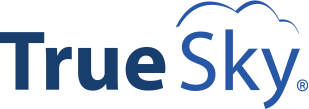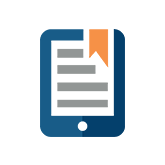How Corporate Budgeting Software Enhances Collaboration
In today’s dynamic business environment, effective budgeting is more than just a financial exercise; it’s a collaborative effort that spans multiple departments and stakeholders. Corporate budgeting software plays a crucial role in fostering this collaboration, making the budgeting process more efficient and transparent. Here’s how modern budgeting software enhances collaboration and boosts overall efficiency.
- Centralized Data Access
One of the primary benefits of corporate budgeting software is its ability to centralize data. Traditional budgeting methods often involve disparate spreadsheets and siloed information, which can lead to inconsistencies and inefficiencies. Budgeting software consolidates data from various departments into a single platform, providing all stakeholders with a unified view of financial information. This centralization ensures that everyone is working from the same data, reducing errors and discrepancies.
- Real-Time Collaboration
Modern budgeting tools offer real-time collaboration features that allow multiple users to work on the same budget simultaneously. This real-time interaction means that changes can be made and reviewed instantly, facilitating immediate feedback and adjustments. Team members can communicate directly within the software, share insights, and resolve issues as they arise, significantly speeding up the budgeting process.
- Improved Visibility and Transparency
Budgeting software enhances visibility by providing detailed reports and dashboards that offer insights into financial performance. Departments can see how their budgets fit into the overall financial picture, fostering a greater understanding of how their expenditures impact the organization. This transparency encourages alignment between departments and helps ensure that everyone is working towards common financial goals.
- Streamlined Approval Processes
The approval workflow in traditional budgeting can be cumbersome, with numerous back-and-forth communications and manual approvals. Budgeting software simplifies this process with automated approval workflows and digital signatures. Managers can review and approve budgets directly within the software, reducing delays and streamlining the overall process.
- Enhanced Communication and Feedback
Corporate budgeting software often includes features such as comment sections and annotation tools that facilitate communication between team members. Stakeholders can leave comments, ask questions, and provide feedback directly within the platform, reducing the need for lengthy email threads or meetings. This integrated communication helps ensure that everyone is on the same page and can address issues promptly.
- Scenario Planning and Analysis
Effective collaboration involves not only aligning on current budgets but also planning for future scenarios. Budgeting software allows teams to create and analyze multiple budget scenarios, which can be shared and discussed across departments. This capability helps teams prepare for various financial outcomes and make informed decisions based on different potential scenarios.
- Automated Data Integration
Integration with other financial systems and data sources is a key feature of modern budgeting software. By automatically pulling data from ERP systems, CRM tools, and other business applications, budgeting software reduces the need for manual data entry and ensures that financial information is accurate and up-to-date. This seamless integration supports better collaboration by providing a comprehensive view of financial data across the organization.
Conclusion
Corporate budgeting software is a powerful tool that enhances collaboration among departments, improves efficiency, and drives more accurate financial planning. By centralizing data, facilitating real-time communication, and streamlining approval processes, budgeting software transforms the budgeting process into a collaborative effort that supports organizational goals and fosters alignment across teams. As businesses continue to navigate complex financial landscapes, leveraging the capabilities of budgeting software will be essential for achieving financial success and operational excellence.



